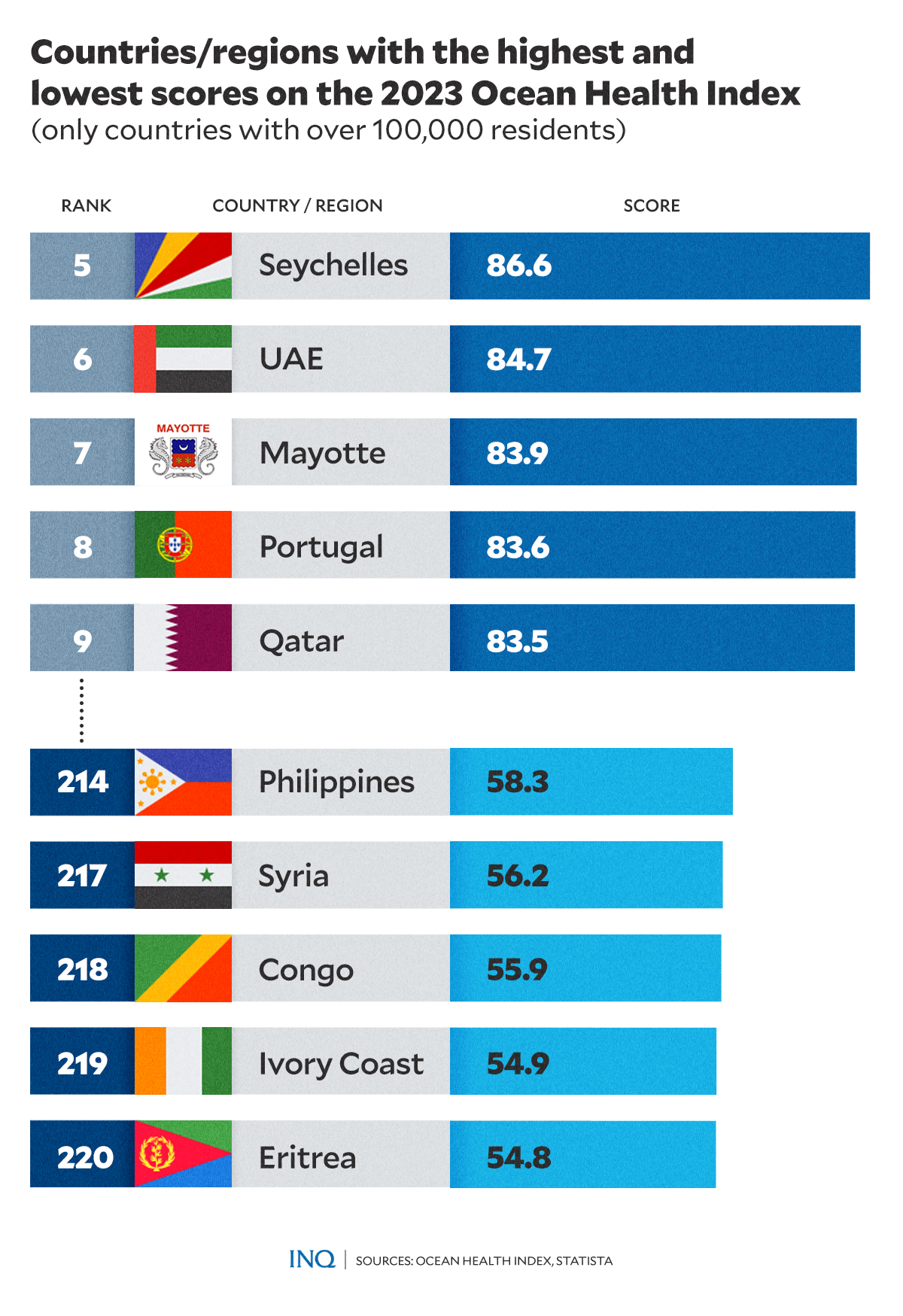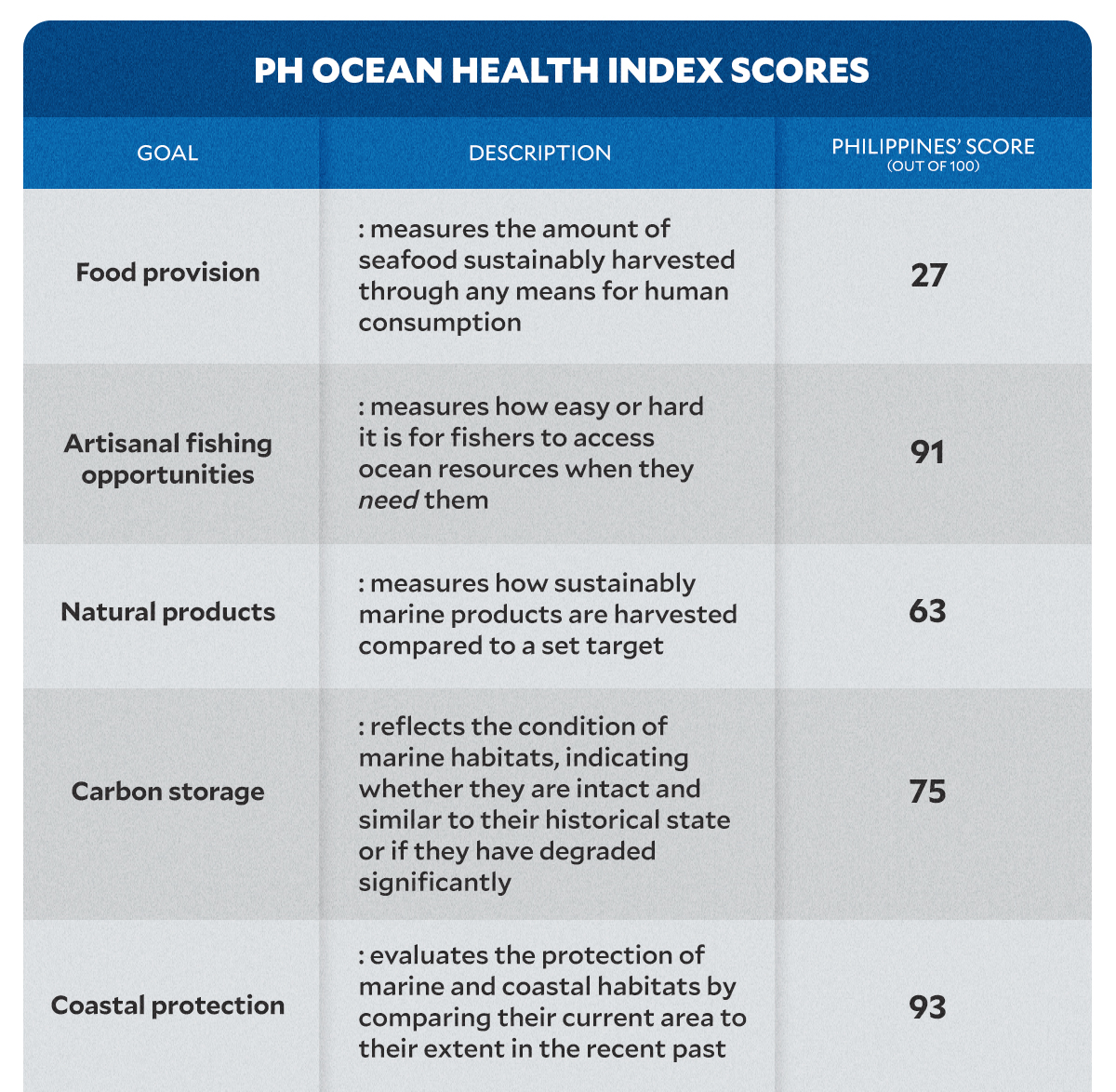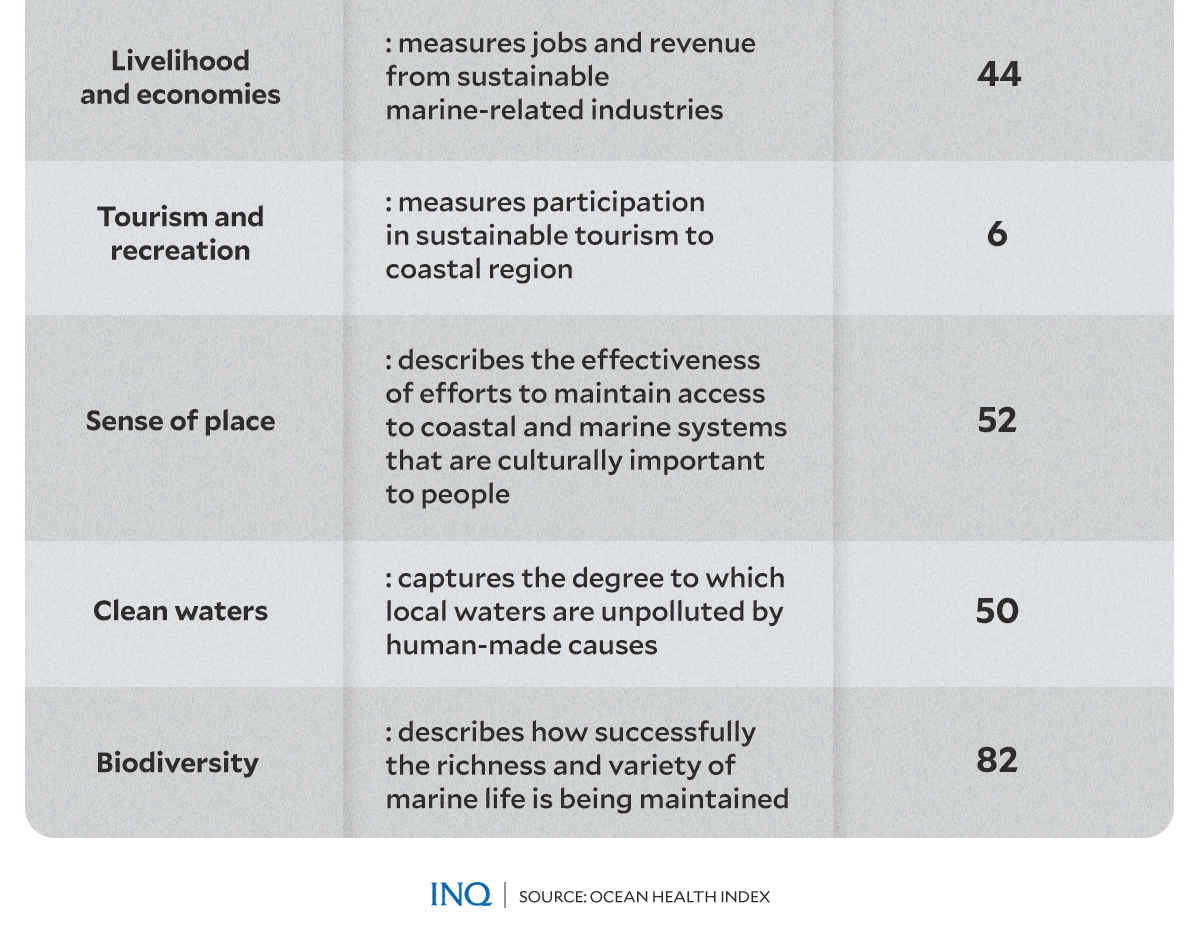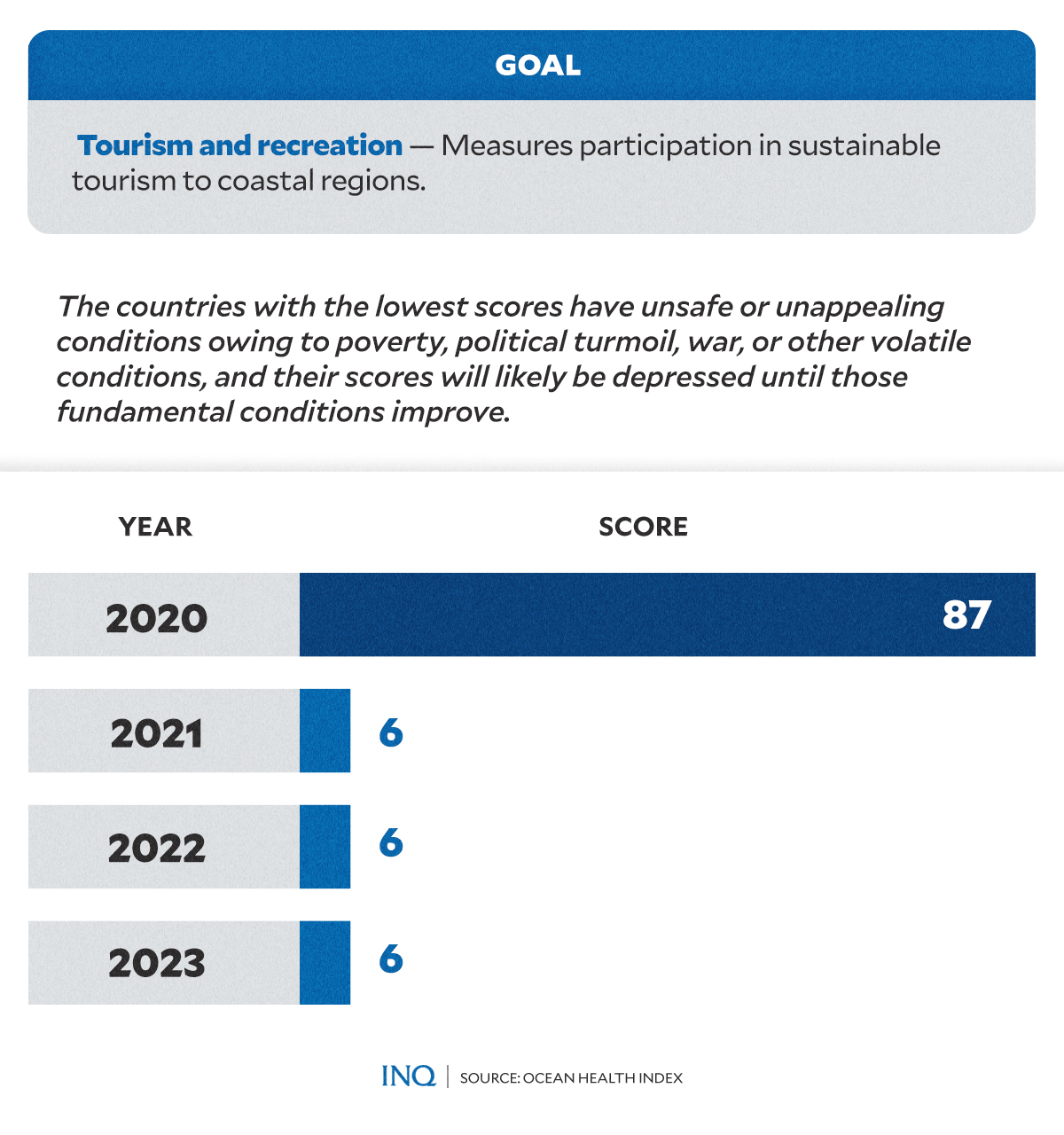PH ocean systems deteriorating, says study
MANILA, Philippines — Famed for its stunning beaches, the Philippines faces a stark reality as it plunges to 214th out of 220 in the latest Ocean Health Index (OHI), signaling a decline in marine ecosystem health.
The archipelago’s diverse waters, home to the world’s richest marine biodiversity, have long been a paradise for divers and environmentalists.
However, overfishing, pollution, and climate change are increasingly threatening these vibrant marine habitats, jeopardizing not only local livelihood sources but also global environmental health.
The decline in the Philippines’ ocean health was highlighted in the 2023 Ocean Health Index (OHI) scores, which placed the country at 214 out of 220 nations, with an overall score of 58 out of 100—significantly below the global average of 73.
According to the OHI’s website, the index “measures how well ocean systems are sustainably providing people with the benefits and services they need and desire from marine systems.”
Despite a slight improvement from its lowest score of 56 in 2021, the Philippines’ latest result marks a substantial decline from scores of 67 in 2021 and 65 in 2020.
Where PH got high scores
According to the Ocean Health Index (OHI), a country’s overall score is determined by averaging 10 “goal” scores, which reflect the ecological, social, and economic benefits expected from healthy oceans.
These goals include:
- Food provision: measures the amount of seafood sustainably harvested for human consumption
- Artisanal fishing opportunities: measures how easy or hard it is for fishers to access ocean resources when they need them
- Natural products: measures how sustainably marine products are harvested compared to a set target
- Carbon storage: reflects the condition of marine habitats, indicating whether they are intact
- Coastal protection: evaluates the protection of marine and coastal habitats by comparing their current area to their extent in the recent past
- Livelihood and economies: measures jobs and revenue from sustainable marine-related industries
- Tourism and recreation: measures participation in sustainable tourism to coastal region
- Sense of place: describes the effectiveness of efforts to maintain access to coastal and marine systems that are culturally important to people
- Clean waters: captures the degree to which local waters are unpolluted by human-made causes
- Biodiversity: describes how successfully the richness and variety of marine are being maintained
Each goal is rated on a scale from 0 to 100, based on how well benefits are delivered in relation to a sustainability target. Lower scores suggest either the potential to realize more benefits or that existing practices are compromising the sustainability of future benefits.
Although the Philippines recorded a low overall OHI score, it demonstrated strengths in specific areas.
Notably, it excelled in “Coastal Protection” with a score of 93 out of 100, suggesting that marine and coastal habitats, which protect against flooding and erosion, are largely intact or well-restored.
“Storm protection by coastal habitats saves lives, property and is worth billions of dollars each year. Coral reefs, mangroves, seagrasses, salt marshes, and sea ice act as natural buffers against incoming waves,” OHI explained.
“By protecting against storm damage, flooding, and erosion, these living habitats keep people safe and can help mitigate economic loss of personal and public property, cultural landmarks and natural resources,” it added.
The country also scored high in “Artisanal Fishing Opportunities,” achieving a 91 out of 100 rank. This indicates effective government policies and access that support local, small-scale fishing, essential for the livelihood and sustenance of local communities.
READ: PH ranks poorly in tourism sustainability, resilience indices
READ: DOT aims to strengthen PH-Austria tourism ties
Weak sustainable tourism performance
However, the high scores in ‘Coastal Protection’ and ‘Artisanal Fishing Opportunities’ starkly contrast with the Philippines’ performance in sustainable tourism
The country’s lowest OHI score was in the ‘Tourism and Recreation’ goal, which was just six out of 100.
According to the OHI, low scores in this category often result from unsafe or unappealing conditions due to poverty, political turmoil, or other instabilities and are unlikely to improve until these underlying issues are addressed.
“Once these conditions are resolved, improvements to Tourism and Recreation can occur rapidly,” OHI stressed.
During last year’s World Ocean Day, the Department of Tourism (DOT) announced a renewed commitment to promoting sustainable and regenerative tourism.
The agency said the initiative is centered on responsible resource management, preservation of environmental, historical, and cultural legacies, and fostering a sense of pride in Filipino heritage.
“As we mark this global effort to manage the oceans for the benefit of mankind, the DOT is committed to its unique mandate in tourism, to both promote and preserve our destinations while ensuring a memorable and meaningful Philippine travel experience,” DOT said.



















